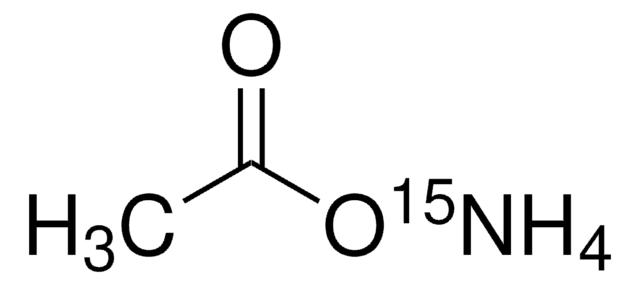NIST8392
Human DNA for Whole-Genome Variant Assessment (Family Trio of Eastern European Ashkenazi Jewish Ancestry) (HG-002, HG-003, HG-004)
NIST®SRM®
Synonym(s):
Human DNA for Variant Calling (Ashkenazi Jewish) (HG-002, HG-003, HG-004)
About This Item
Recommended Products
form
liquid
packaging
pkg of 10 μg (3 vials)
manufacturer/tradename
NIST®
application(s)
genomic analysis
storage temp.
−20°C
General description
SRM 8392_cert
SRM 8392_SDS
Application
- whole genome sequencing
- whole exome sequencing
- targeted sequencing such as gene panels
Features and Benefits
- This reference material contains isolated DNA rather than live cells and is intended for research use.
- An extensive report of the investigation is available through NIST
- Information values are provided for single nucleotide variations (SNVs), small insertions and deletions (indels), and homozygous reference genotypes.
Other Notes
- RM 8392 is stored at –20 °C at NIST but will be shipped in freezer packs and may not arrive frozen.
- Details on expiration, storage, safety, usage, and source are provided in the NIST certificate.
- Information on biomaterials, disposal, and transport is available in the SDS.
- he size distributions are measured using PFGE, and biases of this method were not characterized.
Legal Information
Storage Class Code
12 - Non Combustible Liquids
WGK
WGK 1
Flash Point(F)
Not applicable
Flash Point(C)
Not applicable
Regulatory Listings
Regulatory Listings are mainly provided for chemical products. Only limited information can be provided here for non-chemical products. No entry means none of the components are listed. It is the user’s obligation to ensure the safe and legal use of the product.
JAN Code
NIST8392:
NIST8393-10EA:
Choose from one of the most recent versions:
Certificates of Analysis (COA)
Sorry, we don't have COAs for this product available online at this time.
If you need assistance, please contact Customer Support.
Already Own This Product?
Find documentation for the products that you have recently purchased in the Document Library.
Our team of scientists has experience in all areas of research including Life Science, Material Science, Chemical Synthesis, Chromatography, Analytical and many others.
Contact Technical Service



